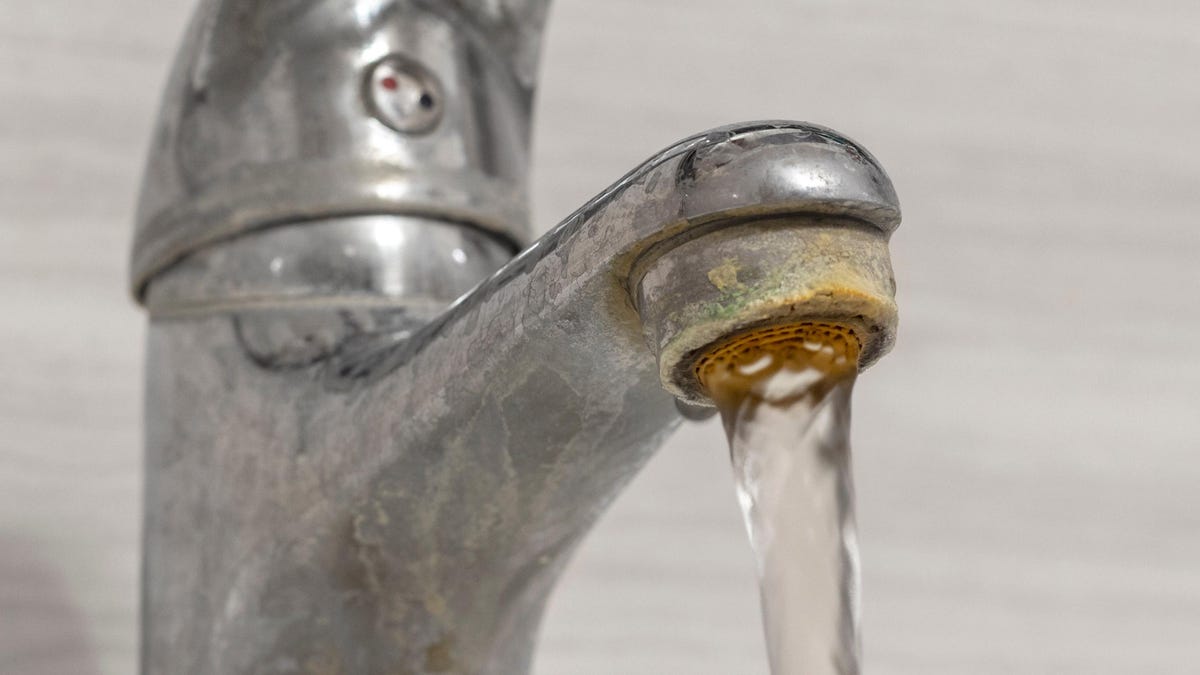The Best Ways to Deal With Hard Water (and Why You Should Do It)

Chances are you don’t think too much about water in your life. It’s easy to take it for granted, and when it comes to water quality, most people run out, buy some sort of water filter, and be done with it. As a result, many people are surprised to learn that the water that enters our homes can vary greatly, especially in terms of mineral content. Water that is high in substances like calcium, lime, or magnesium is called ” hard water ” and there are several signs that your home has it.
If you see limescale on faucets, stains on clean dishes, or rust around your plumbing, congratulations: you have hard water. Although it is perfectly safe to drink it, hard water should not be ignored. Aside from these unsightly deposits (which occur when water evaporates and leaves minerals dissolved in it), hard water slowly destroys your home.
What harm does hard water do?
If you are not sure if you are dealing with hard water, you can easily check it. You can either buy a do-it-yourself test kit , or do a “soap suds” test: fill a plastic bottle about a third full with water, add some dish soap and shake. If you get a lot of bubbles, your water is pretty soft. If you get very few bubbles, your water is pretty hard. You can compare with bottled water if you are unsure.
If you confirm that you have hard water, you need to do something about it, because hard water can do a lot of harm. This takes a long time, so don’t panic, but if you don’t treat hard water, it can:
- Reduced service life of water heaters, dishwashers and boilers.
- Constantly stain bathtubs, toilets and sinks.
- Clog pipes with mineral deposits, reducing water pressure and eventually destroying pipes.
- Discolor the exterior of your home (if you have sprinklers or other sources of water outside).
- Painting tiles and grout.
It can also make washing dishes more of a challenge because the soap is harder to lather and it makes it harder to wash your clothes (and it’s harder on your clothes, they wear out faster).
Without treatment, hard water will cost you a hefty amount of money that could have been avoided in connection with the repair and replacement of household appliances, not to mention the aesthetic damage to the interior and exterior of the house.
How to treat hard water
The good news is that hard water is fairly easy to clean up. You have several options to consider, and the right choice for your home will depend on how severe your hard water problem is, your budget, and environmental factors.
Cleaning. If your water is moderately hard or you are unable to consider an expensive solution, you can settle for a reliable cleaning regime to remove mineral stains (white vinegar works wonders) and add rinse aid to your dishwasher . It won’t stop scale inside your pipes or other damage, but if your hard water problem is minor, you won’t notice major problems for a long time, so perhaps all you have to do is deal with the more superficial effects.
water procedures. If you have a more serious hard water problem, you may want to consider a whole-home water softener solution. These are systems that are installed at the point where water enters your home, removing the minerals that make your water hard. There are three options here:
- Sodium exchange systems. They use salt to replace calcium and other minerals in the water with sodium. The result is softer water with little salt content, but you will need to periodically top up the system with salt, so this is a fixed cost. There are also relatively small but noticeable water losses in these systems , which is something to be aware of as it will affect your water bill and the environment. These systems can cost anywhere from $400 to $2,500 plus the cost of recharging with fresh salt.
- Salt-free conditioners. These systems use a variety of processes to either bind the minerals in your water into crystals that do not stick to surfaces, using a process called pattern assisted crystallization (TAC), or nucleation assisted crystallization (NAC), which prevents them from damaging your pipes. or Technique. Another option completely removes minerals by binding them with citric acid. These systems do not add sodium to your water and do not require a salt make-up, although TAC/NAC systems leave minerals in your water (which some people don’t mind as it adds flavor to the water), and the acid of water-based systems can be difficult to calibrate. since you need an accurate level of acid to be effective without making your water, well, acidic. They can cost up to $3,000 to install .
- Magnetic systems. Yes, magnets. These are fairly affordable systems that use magnetism to change the structure of mineral ions so they don’t stick together and scale. Do they actually work? The science is actually inconclusive , but you can toss one of these into your home for less than $ 500 , so it might be worth taking a flyer with you.
Even if the stains and deposits that result from hard water are not a concern, you need to deal with hard water due to the potential damage to your home. While water softening systems can be expensive, the money you save in the long run makes them a good and necessary investment.